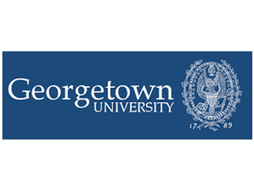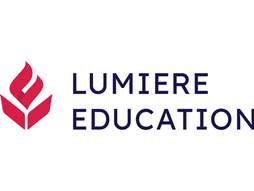Emory University's Summer Programs - Should You Apply?
Emory University offers a host of summer programs for high schoolers that you should consider if you are looking to get a glimpse of college life and academics before applying.to university. In this blog, we will cover two of Emory’s summer programs - the Emory Pre-College Program, and the Emory Summer College Program
Let’s dive into a more thorough review of these programs. We will cover their main offerings, eligibility criteria, acceptance rate, and costs!
Note that we will be covering the pre-college program in more detail than the summer college program, as it is a more popular offering, and provides a holistic college experience, as opposed to credits.
What is the Emory Pre-College Program?
The Emory Pre-College Program offers a summer academic opportunity to ambitious high school juniors and seniors. This program provides you with a preview of the academic and residential life of students at Emory University.
The shift from high school to college can be hard - you’ve got to juggle living alone, rigorous academics, extracurriculars, and more. Participating in a pre-college program can help ease this process for many students. Plus, having access to networking and potential research opportunities with college professors when you’re still in high school can be invaluable!
During their time in the pre-college program, enrolled students must attend classes led by Emory professors who are experts in their respective fields. Enrolled participants reside together in on-campus dormitories and get to partake in various tailored programs and activities designed to equip them for the college experience. Prospective attendees from high schools can choose from a diverse range of academic subjects (30+ non-credit course options spanning 2 weeks each), opting for sessions lasting either two or six weeks.
How is the Emory Pre-College program structured?
While the Emory Pre-College Program is noncredit, they also offer the Emory Summer College Course - which does provide college credit to its participants.
The Emory Pre-College program spans 2 weeks, offering non-credit courses. It comprises three residential sessions and one online session, hosting a total of 400 students.
All classes host an average of 14 students.
The EPCP offers a diverse range of subject areas for students:
Pre-Health
STEM/Sciences
Pre-Professional
Social Sciences/Humanities
Writing, Arts, and Languages
Students also must attend College 101 workshops and student-led discussions to aid in their preparations for college admissions. Coursework volume varies, demanding several hours daily.
Beyond classes, pre-college students can also participate in extracurriculars to get the full college experience. On-campus extracurriculars are one option, and the other is Eagle Outings - which explores Atlanta's attractions like the Coca-Cola Museum and sporting events.
What is the acceptance rate?
About 300 students participate in the Emory Pre-College Program, which makes the program pretty welcoming.
Is the pre-college program prestigious?
Although there is no official data on the Emory Pre-College Program's acceptance rate, one can infer that the program is inclusive rather than highly exclusive. The program requires a substantial fee for participation, which makes its perceived prestige seem lower than fully-funded research opportunities or paid summer internships. If you're seeking a prestigious pre-college experience, it might be worth considering fully-funded immersion programs, research fellowships, or government-funded mentorship initiatives.
If you are considering opting for the credit-based Summer Program offered in the summer, here’s something you should keep in mind - there is no benefit of opting for credits in a pre college program if you do not intend to transfer them to your undergraduate program in the future, or wish to study at Emory! Apart from demonstrating academic drive and motivation, credit-based pre-college programs are not assessed by admissions officers any differently than non-credit programs.
Where is it held?
The Emory Pre-College Program takes place at the Emory University campus in Atlanta, Georgia. The Pre-College program offers choices for resident and commuter students and a separate online session for remote students. Online courses for both programs can be accessed remotely by enrolled students located anywhere in the world.
Who is eligible for its programs?
Applicants must be at least 15 years old by the session start date. They should be in 10th or 11th grade in high school. The minimum GPA requirement for admission is 3.0.
Non-US citizens or Permanent Residents should apply as international applicants, including those studying in US high schools. Additional criteria for international applicants are outlined here.
What is the cost of applying and participating?
The application fee is $70 and non-refundable.
Tuition costs of the Emory Pre-College Program (non-credit) are as follows:
Residential: $4,667 (2 weeks), $9,372 (4 weeks)
Commuter: $3,292 (2 weeks), $6,559 (4 weeks)
Online: $2,992 (2 weeks), $5,984 (4 weeks)
Financial aid is available based on demonstrated financial need.
Dates and deadlines you should keep in mind before applying
Deadlines are usually the same year on year, so the 2024 dates should be similar to the 2023 dates.
Here are the 2023 session dates and deadlines for your reference:
Two-Week Noncredit Courses:
Session A: June 18 - July 1, 2023 [Deadline: June 2]
Session B: July 2 - July 15, 2023 [Deadline: June 16]
Session C: July 16 - July 29, 2023 (Residential) [Deadline: June 30]
Session C: July 17 - July 28, 2023 (Online) [Deadline: June 30]
Pros and Cons of the Emory Pre College Program
As you evaluate the Emory Pre-College Program, take into account your priorities and situation. Here are a few notable advantages and potential drawbacks to keep in mind:
Pros:
College exposure: Participation in face-to-face on-campus classes allows you to interact with professors and peers freely. These activities foster comfort in the college atmosphere.
Independence and personal development: A residential pre-college program empowers you to independently manage responsibilities and cultivate meaningful connections.
Acquire essential skills: Another compelling aspect that validates the value of the Emory Pre-College program is its emphasis on skill acquisition and application. Enrolled students engage in activities that stimulate critical thinking, collaborative project work, group decisions, and diverse endeavours. Communication abilities are honed, and a problem-solving skill set is fortified.
Nurturing learning environment: The Emory Pre-College Program fosters a supportive learning setting that actively encourages student interaction with faculty and instructors. This makes it easy for you to approach peers and professors to seek information and guidance.
Enhance college applications: Receive expert guidance from Emory professionals to navigate the college application process. Should your experience with an Emory professor be positive, you might even be able to obtain a letter of recommendation for your college applications.
Cons:
Cost of attendance: While financial aid options are accessible (detailed cost and financial aid information discussed below), it's essential to acknowledge that the EPCP comes with a significant expense.
No guarantees of admission to Emory: It's important to note that admission to the Emory undergraduate program is not guaranteed by participation in the EPCP. However, this doesn't imply that it's pointless. If you can effectively showcase your learning and growth from this experience, it is likely to benefit your application.
One more option - the Emory Summer College Program
Ambitious learners can earn college credit through the comprehensive six-week Emory Summer College course, which differs from the Emory Pre-College program.
The Summer College course is a non-residential (commuter/online only) program that lets enrolled high school students attend undergraduate courses and earn transferable college credits at Emory.
The average class size is 28 students, with peers being Emory undergraduate students.
International students can join online courses, while on-campus attendees require an F-1 visa.
Emory Summer College might give you a leg up on networking opportunities with peers being Emory undergraduate students. Another benefit is that you get to experience taking a college-level course in high school itself.
However, there’s no residential option, so the on-campus courses are restricted to only those who can commute from Atlanta.
Tuition & Fees:
Commuter: $5,508 (3 credits), $7,293 (4 credits)
Online: $4,350 (3 credits), $5,775 (4 credits)
Dates and Deadlines to keep in mind:
Deadlines are usually the same year on year, so the 2024 dates should be similar to the 2023 dates.
Here are the 2023 session dates and deadlines for your reference:
Session 1: May 12 - June 23, 2023 [Deadline: April 28]
Session 2: June 26 - August 4, 2023 [Deadline: June 9]
Our Review
The Emory Pre-College Program and the Summer College Program offer noteworthy benefits to high school students curious about the college experience.
Participating in the program offers you the opportunity to actively engage with esteemed professors and peers, helping you feel right at home in a college atmosphere. Living on campus boosts your independence, lets you flourish personally, and grows those all-important people skills. Your critical thinking, collaboration, and problem-solving skills will be honed with exposure to college-level classes. The program also nurtures a supportive learning atmosphere, encouraging student-faculty interaction and expert guidance for college applications.
However, there are considerations to make for the cons as well. The cost is notable, even with available financial aid. Plus, participation doesn't guarantee admission to Emory, which means you need to demonstrate your individual growth and takeaways from the program for application success.
In summary, Emory Pre-College presents several potential advantages despite some drawbacks. If you prefer smaller learning environments and a taste of campus life, the Pre-College program could be a suitable option. Conversely, the Summer College program might be a better fit if you prioritize academic focus.
Additionally, you can also work on independent research in AI, through Veritas AI's Fellowship Program!
Veritas AI focuses on providing high school students who are passionate about the field of AI a suitable environment to explore their interests. The programs include collaborative learning, project development, and 1-on-1 mentorship.
The AI Fellowship program will have students pursue their own independent AI research project. Students work on their own individual research projects over a period of 12-15 weeks and can opt to combine AI with any other field of interest. In the past, students have worked on research papers in the field of AI & medicine, AI & finance, AI & environmental science, AI & education, and more! You can find examples of previous projects here.
If you are passionate about conducting research, you could also consider applying to the Lumiere Research Scholar Program, a selective online high school program for students I founded with researchers at Harvard and Oxford. Last year, we had over 4000 students apply for 500 spots in the program! You can find the application form here.
Stephen is one of the founders of Lumiere and a Harvard College graduate. He founded Lumiere as a PhD student at Harvard Business School. Lumiere is a selective research program where students work 1-1 with a research mentor to develop an independent research paper.
Image Source: Emory University logo










